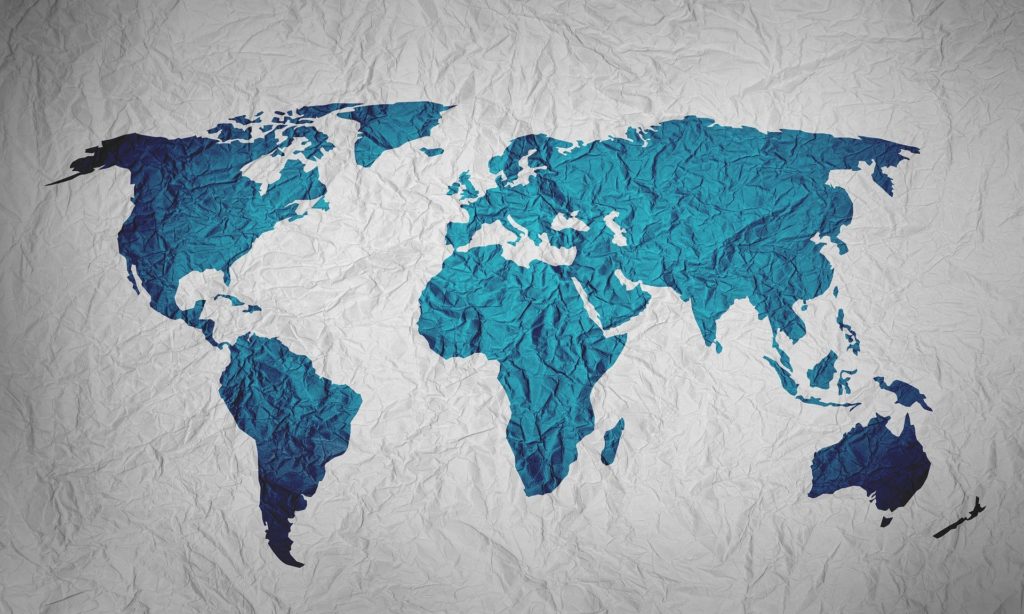
This is the one I as looking for when I posted the other Eugene Robinson post. In the first he looked at North America. Now he has expanded to the world. We need to get involved in talking to, cajoling, and threatening recalcitranced world leaders but first we need to get our house in order.
The latest United Nations update on climate change is written in even more numbingly impenetrable prose than usual, but concealed in that thicket is a sledgehammer: Even if nations fulfill their current promises to reduce greenhouse gas emissions, we are headed for “catastrophic” global warming by century’s end. That is how U.N. Secretary General António Guterres characterized the report’s prediction that the planet is on track to warm by 2.7 degrees Celsius (nearly 5 degrees Fahrenheit) by 2100. This far exceeds the Paris agreement target of keeping warming to no more than 1.5 degrees Celsius. And yes, the more dire forecast assumes that nations honor their current commitments to rein in emissions. We are sure to hear many dire warnings about climate change from world leaders, including President Biden, at this week’s U.N. General Assembly speech-festin New York. We will hear pious boasting about what countries have already done to curb heat-trapping carbon emissions — and weaselly excuses about why they regrettably cannot do more. What we will not hear is concrete plans to prevent the worst-case climate scenarios. U.N. scientists say that carbon emissions need to be slashed 45 percent by 2030. Instead, emissions are on a path to increase 16 percent above 2010 levels by the end of the decade.
washingtonpost.com
Many countries are not slowing down their bad habits but are continuing if not speeding up them. There are many reasons and economics is the big one. But if climate change will hurt economies should we not start to think in new paradigms?
Instead of slamming on the brakes as we head to the edge of a cliff, we’re doing a Thelma-and-Louise and speeding up. Of course, part of the problem is that this car has many drivers. Among the most powerful is Chinese President Xi Jinping. As the world’s dominant economic power, the United States has an obligation to lead humanity toward a clean-energy future. But China is now by far the globe’s biggest emitter of greenhouse gases, accounting for more than twice the share of global carbon emissions as the United States. We will never solve global warming unless Beijing becomes part of the solution, not part of the problem. I’ve followed the climate change issue for three decades and my view has been that China will ultimately recognize its own self-interest and curb emissions. I have been heartened by the way China aspires to lead the world in clean-energy technology, such as solar panels and electric cars. I’ve been hoping to see Beijing pivot definitively away from fossil fuels, making clean energy a matter of patriotism, pride and civic duty.
China is not acting as implied. They continue with coal plants. They have a smog problem.
But I’m losing faith. We’ve seen China continue to build and bring online coal-fired power plants. We’ve seen China continue to prioritize short-term economic growth over the long-term health and safety of its 1.4 billion citizens. As the most powerful Chinese leader since Chairman Mao Zedong, Xi has more to say about the earth’s environmental future than any other individual. It is true that U.S. carbon emissions per capita are still much higher than China’s, but that is no longer a rational yardstick. Everybody’s emissions need to come down dramatically, right now, and we have the technologies and the incentives to make that happen. What China lacks is the determination to do the right thing, and this needs to change.
China is not alone. India is also a culprit. Both do good things but also both do bad things.
One world leader who does plan to attend the U.N. General Assembly in person is Prime Minister Narendra Modi of India — the world’s third-biggest emitter of carbon. With its billion-plus population and its fast-growing economy, India is on a path to eventually surpass the United States in emissions. Modi has begun talking a better game on climate change, saying that addressing the problem is a matter of national “environmental security.” But at the G-20 meeting earlier this year, India blocked an agreement on more ambitious new climate goals and said the focus should instead be on getting rich countries to reduce their per-capita emissions. Neither China nor India has yet submitted new emissions targets under the Paris agreement process. A comprehensive round of goals will be on the agenda at the November climate summit in Glasgow, Scotland.
In Glasgow the world leaders need a frank and open discussion. They will need solid commitments.
But what world leaders really need to talk about is not a new set of numerical targets to be made, missed or fudged but a new paradigm for development based on clean energy. China, India and the rest of the developing world have every right to lift billions of poor people out of poverty. But everyone should want this to be done via energy from renewable sources that do not send the planet past a climate tipping point that is already in clear sight. There is no higher standard of living in a world that is drowning, burning and choking. It is not too late to avert catastrophe. We have the means — solar, wind, hydroelectric, nuclear — to do so. All we need, world leaders, is the will.
We will read about what happens in Glasgow and either cheer or moan. We are not in this fight alone for the whole world is impacted.



